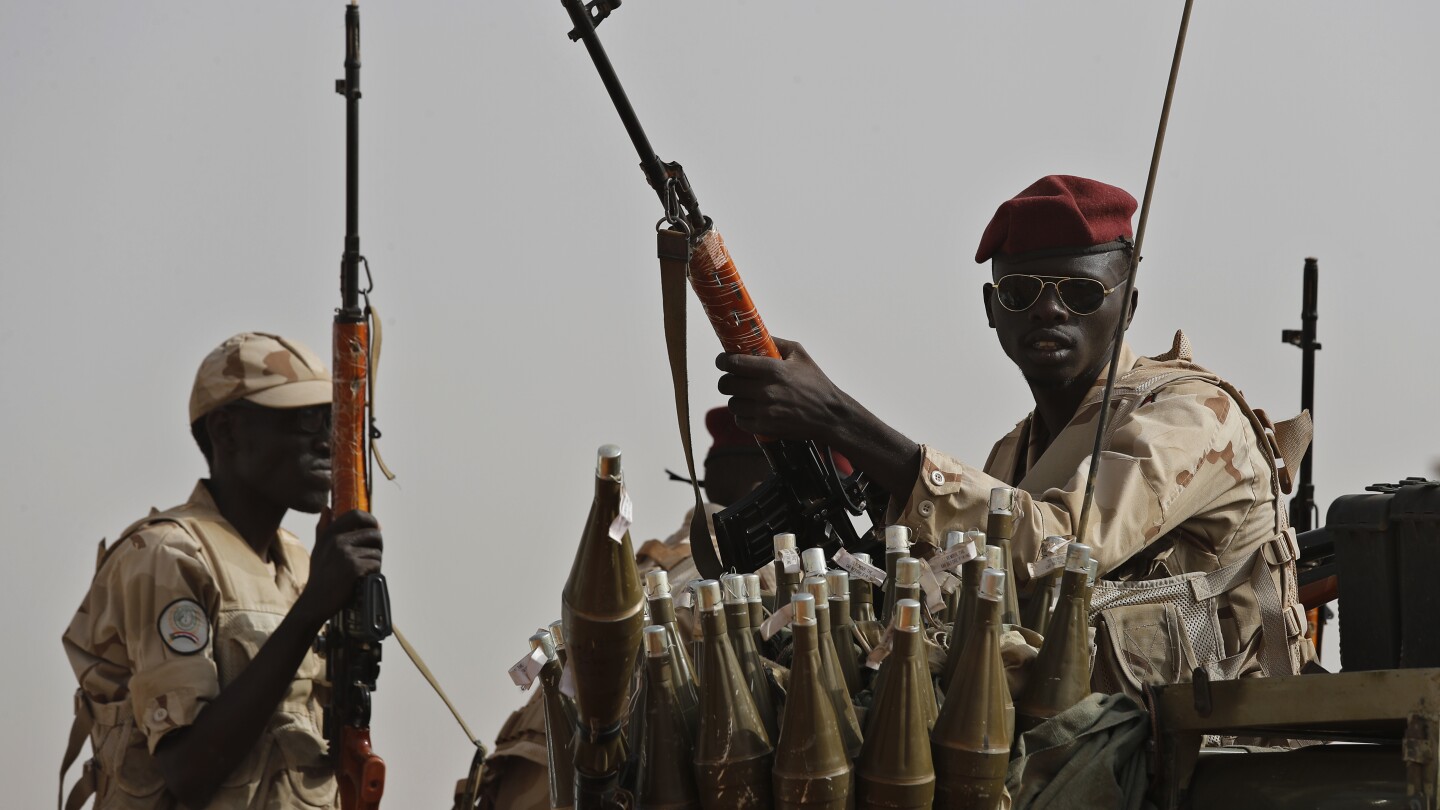By SAMY MAGDY
CAIRO (AP) — An international rights group on Monday accused a paramilitary group in war-torn Sudan of sexual violence against women, including rape, gang rape, and forced and child marriage. A smaller number of incidents were also attributed to the military, it said.
Human Rights Watch called for the United Nations and the African Union to establish a joint mission to protect civilians in Sudan as more than 15 months of fighting between the military and the paramilitary Rapid Support Forces has shown no signs of abating.
“The Rapid Support Forces have raped, gang raped, and forced into marriage countless women and girls in residential areas in Sudan’s capital,” said Laetitia Bader, deputy Africa director at Human Rights Watch.
The group also accused both warring parties of blocking survivors’ access to critical emergency care, and said the military has “willfully restricted” shipments of humanitarian supplies to RSF-controlled areas, including medical supplies and aid workers since October last year.
The RSF, meanwhile, has pillaged medical supplies and occupied medical facilities, it said. RSF fighters also committed sexual violence against service providers, the group said, citing local responders.
Sudan plunged into chaos in April last year when simmering tensions between the military and the RSF exploded into open fighting in the capital, Khartoum, and elsewhere in the country. The fighting has killed more than 14,000 people and wounded 33,000 others, according to the U.N., but rights activists say the true toll could be much higher.
The conflict has created the world’s largest displacement crisis, with over 11 million people forced to flee their homes.
The formerly military-aligned RSF grew out of the Janjaweed militias formed during the conflict in Darfur in the 2000s by former President Omar al-Bashir, who ruled the country for three decades until he was overthrown during a popular uprising in 2019. He is wanted by the International Criminal Court for charges of genocide and other crimes committed during the conflict.
In a report released Sunday, Human Rights Watch said it documented widespread sexual violence, as well as forced and child marriage during the conflict in Khartoum and the nearby cities of Omdurman and Bahri, or Khartoum North. The three cities are known as Greater Khartoum.
These acts constitute “war crimes and crimes against humanity,” it said.
The group said most of the cases were attributed to the Rapid Support Forces, but some were also blamed on the military, especially as the military retained control of Omdurman earlier this year. It said men and boys have also been raped, including in detention.
Both the RSF and the military didn’t immediately answer requests for comment.
Human Rights Watch said neither party has taken meaningful steps to prevent its forces from committing rape or attacking health care, nor to independently and transparently investigate crimes committed by their forces.
It said an RSF spokesman denied occupying hospitals or medical centers in Khartoum and its sister cities, but didn’t provide evidence that the group has carried out effective investigations into allegations of sexual violence by its forces.
It called on the African Union and the United Nations to jointly deploy a new mission to protect civilians in Sudan, including preventing sexual and gender-based violence.
“The United Nations and African Union need to mobilize this protection and states should hold to account those responsible for ongoing sexual violence, attacks on local responders, health facilities and the blocking of aid,” Bader said.
Clashes were reported over the weekend in eastern Sudan and in the city of al-Fasher, the military’s last stronghold in the sprawling western region of Darfur. The RSF has besieged al-Fasher for months in an effort to seize control.
International experts warned last month that 755,000 people are facing famine in the coming months, and that 8.5 million people are facing extreme food shortages.

